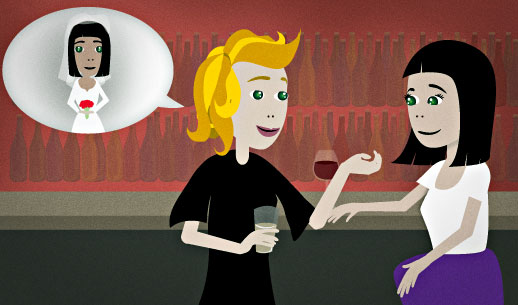“Oh my God, you must be so excited!”
Your close friend has recently announced that she's getting married. The wedding is in a couple of months. You're talking with each other, and you say this.
Oh my God, you must be so excited!
Want Video and Sound? Follow us on YouTube

Oh my God!
This is an expression that people use when they're shocked or surprised. This can be for positive reasons, like when someone says that they're pregnant, or for negative reasons like when someone has gotten in an accident.
When someone tells you good news, you might expect to say "congratulations". This would be the polite way to react if a coworker or not-very-close friend said that she was going to have a baby. But with someone really close like your sister, "Congratulations" is too distant. So a more excited response like "Oh my god!" is better.
Oh my God!
This is an expression that people use when they're shocked or surprised. This can be for positive reasons, like when your married sister says that she's pregnant:
...or for negative reasons like when someone has gotten in an accident.
When someone tells you good news, you might expect to say "congratulations". This would be the polite way to react if a coworker or not-very-close friend said that they were going to get married. But with someone really close like a close friend, "Congratulations" is too distant. So a more excited response like "Oh my God!" is better.
You must (be/have/do something)
Use this expression when you want to make a guess about someone. It's really useful when you're trying to be nice to someone and predict what they want. For example, you might say this to someone who's a guest at your house:
You must be starving!
This phrase also shows that you understand a person's feelings:
so (adjective)
The adverb "so" is similar to "very", but "so" actually sounds stronger:
I'm very sleepy.
I'm so sleepy!
(someone) is excited
Words like "excited" can be confusing. It's hard to remember whether to use "excited" or "exciting". The easy way to remember the difference is to remember:
I'm excited.
It's exciting.
You can actually call people "exciting" as well, like "She's s a really exciting lady". But that's a lot less common than "It's exciting".
